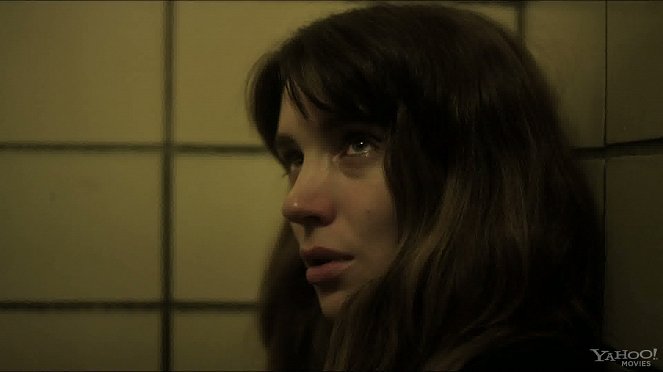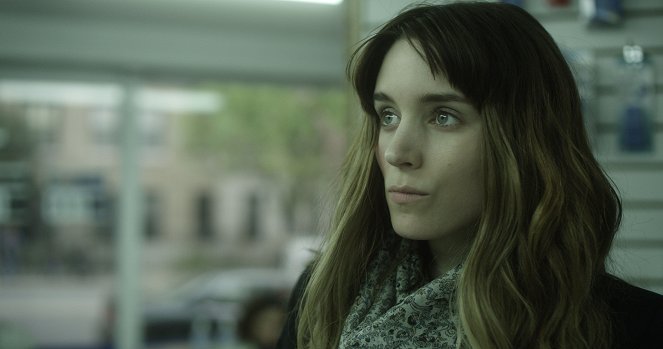Regie:
Steven SoderberghDrehbuch:
Scott Z. BurnsKamera:
Steven SoderberghMusik:
Thomas NewmanBesetzung:
Jude Law, Rooney Mara, Catherine Zeta-Jones, Channing Tatum, Vinessa Shaw, Ann Dowd, David Costabile, Peter Friedman, Mamie Gummer, Polly Draper (mehr)Streaming (4)
Inhalte(1)
Emily Taylor ist wieder mit ihrem Mann Martin vereint. Nach vier Jahren Haft wegen Insiderhandels ist er auf freiem Fuß. Seit seiner Gefangennahme leidet Emily unter Depressionen, die nun aber stärker werden. Nach einem Selbstmordversuch kommt sie zu dem engagierten Psychiater Dr. Jonathan Banks. Dieser behandelt sie nach Rücksprache mit Emilys ehemaliger Therapeutin Dr. Siebert mit einem neuen Medikament. Als Emily unter dessen Einfluss eine Bluttat begeht, verliert Banks Praxis und Klienten. Um seinen Ruf zu retten, muss er den Fall klären. (ORF)
(mehr)Videos (13)
Kritiken (9)
Eine exzellente Leistung von Rooney Mara, das will und muss ich betonen. Ein Thriller, zu dem ich eine positive Rezension gelesen habe, dann ist es wirklich besser, nichts zu wissen, nicht nachzuforschen, nichts herausfinden zu wollen und sich von der Handlung überraschen zu lassen. Das Drehbuch ist die starke Seite des Plots, als ich mehrmals zweifelte, ob es sich in eine peinliche oder dumme Richtung bewegt, wurde ich gleich wieder meines Irrtums entledigt. Die Auflösung insgesamt ist überraschend und vielleicht auch etwas logisch verträglich. Zum Schluss hebe ich wie schon am Anfang die Spitzenleistung von Rooney Mara hervor.
()
Soderbergh rocks. The brilliant genre change in the middle of the picture is just the type of hacking I approve of. The untraditional development of the plot and the characters that really work - awesome Law and Rooney Mara confirms his status as one of the best young actors in the branch. And then there’s Newman’s chillingly captivating music. A delicacy that shouldn’t be overlooked and that is better not to know too much about in advance.
()
SPOILERS AHEAD. With the opening Psycho shot, Soderbergh tips his hat to Hitchcock, the father of grown-up thrillers, for whom playing with the viewer was also more important than the convincingness of the games that the characters play with each other. The camera angles are improbable, yet effective and full of meaning. They point out the deviant nature of reality as Emily perceives it (or rather how we are supposed to think she perceives it), often situated outside the centre of the shot (of course, if she is speaking for herself, i.e. not in her role, the centre belongs to her). The off-kilter shot compositions give rise to the disturbing feeling that something is missing and that, like Jon, we do not know everything. Whenever a close-up is used, it has a “higher” justification, which is revealed in the second half of the film. Furthermore, the close-ups, some of the dialogue and the music lead us in the wrong direction, creating the false impression that this is a pharmaceutical thriller with dangerous drugs as the main culprit (Ablixa ultimately turns out to be only a MacGuffin), or perhaps a mysterious film-noir (the Haitian who saw a ghost, the eerie “ringing” musical motif recalling the sleigh bells in Belle De Jour). But then comes the first twist, bringing about changes in the narrative perspective and the existing allocation of roles. Only the second viewing makes it possible to appreciate the casualness with which we are made aware of the fact that Emily is faking her mental disorder. Her first scene begins with a close-up of her lips, to which she applies lipstick before her performance. She is subsequently surrounded by mirrors throughout the first half of the film. Doubts about who is actually the culprit and who is the victim – doubts that give rise to a significant part of the film’s dramatic tension – persist even after the final shot, which serves as a symbolic closing of the circle. Instead of a linearly constructed thriller with clearly defined characters, we watch a disturbingly cyclical detective story (like a boomerang, the crime that Martin committed comes back to haunt him) with a capricious perpetrator. In addition to flawless craftsmanship, Side Effects offers warnings about the misuse of medical authority (and confidential information in general) and allusions to the financial crisis. Mainly, however, the film refers to the time of its making through the lens of a cynical society in which money and prestige have greater value than human life. Soderbergh has dealt with the business-like aspect of interpersonal relationships before, but thanks to a genre allowing more consistent (or more ruthless, if you prefer) manipulation of the characters, in Side Effects he succeeded in getting down to the marrow. 90%
()
SPOILER ALERT! – I don't really trust Steven Soderbergh in the long run, but a film with a reputation for a masterpiece, especially with such a packed cast, I was happy to roll with. And I got burned, even though it didn't seem like it at first. The deception (although at that moment unknown to the viewer) was intricate, thorough, and ultimately suspenseful, because it's not clear for a long time which piece of information is important. But once the topics started to overlap too much and the actions of pharmaceutical companies helped the main hero uncover the plot, I knew something was wrong. Moreover, as someone who works in the field of psychiatry, I can't escape the impression that Side Effects does a disservice to mentally ill people. And I'm also bothered by the final outcome of the Scott Z. Burns screenplay, in which women are unjustifiably punished. Combined with Catherine Zeta-Jones' paper-thin lines, clumsy paranoid twists, and a desperately lacking catharsis, I am officially giving up on Steven.
()
An outstanding and rather (very) subversive genre piece which stands and falls with its conclusion. And it‘s with that final explanatory and point making last ten minutes that there is a problem, and not just one. Not that it’s borderline stupid or that it doesn’t make any sense, but.. There simply are few absolutely crucial buts. Which makes you doubly sorry, especially with a movie that’s coherent as this one.
()



Werbung